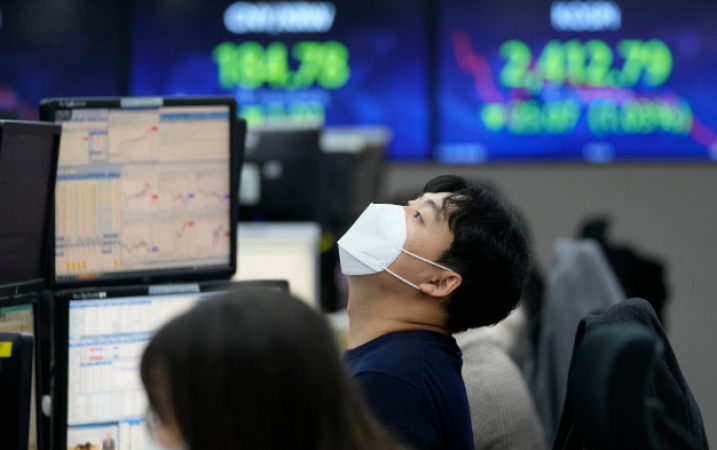
BEIJING: Both the Chinese yuan and the country's major stock indexes saw significant falls in value on Monday as a result of weekend demonstrations against the country's strict COVID-19 rules, which were attended by large numbers of people.
Hong Kong's Hang Seng (HSI) index was down 4.2% in early trade. Since then, it has pared its losses and closed down 1.6%. At the market close, the Hang Seng (HSI) China Enterprises Index, a key index used to measure the performance of mainland Chinese companies listed in Hong Kong, fell 1.7%.
The benchmark Shanghai Composite in mainland China fell 2.2% before losing ground and closing 0.8% lower than on Friday. The heavily tech-weighted Shenzhen Component Index ended down 0.7%.
Also Read: Beirut's "neighbourhood watch" recalls the city's troubled past
On Monday morning, the Chinese yuan, also known as the renminbi, declined against the greenback. The onshore yuan was seen trading 0.9% lower in the tightly regulated domestic market. By afternoon it was trading at 7.213 per dollar, down 0.5%. The offshore rate, which transacts internationally, was last changed 0.3% to 7.213 per dollar.
According to Stephen Innes, managing partner at SPI Asset Management, the yuan's weakening suggests that "investors are driving the ice cold on China," and currency markets "are most likely to determine whether domestic and foreign investors feel." Simple barometer". Unprecedented nationwide protests against China's draconian and costly zero-covid policy led to a slide in the markets.
Residents gathered over the weekend in the country's biggest cities, from the financial hub of Shanghai to the capital Beijing, to mourn victims of the fire in Xinjiang, speak out against zero-Covid and demand freedom and democracy. Such widespread demonstrations of fury and defiance, some of which lasted until early Monday morning, are incredibly unusual in China.
Most Asian markets also declined. At market close, the Nikkei 225 (N225) was down 0.4% in Japan, the S&P/ASX 200 was down 0.4% in Australia and the Kospi in South Korea was down 1.2%.
Dow futures, which predicts how US stock markets will open, fell 0.3%, or 108 points. Futures for the Nasdaq fell 0.6% while those for the S&P 500 fell 0.5%.
Investors were concerned that rising Covid cases and protests in China could reduce demand in one of the world's biggest oil consumers, leading to a sharp drop in oil prices. US crude futures were trading at $74.45 a barrel after declining 2.4%. The benchmark of world oil, Brent crude, fell 2.6% to $81.5 a barrel.
China's central bank capped the amount of cash lenders can hold on Friday, a day before the protests began. The Reserve Requirement Ratio (RRR) of most banks has come down to 25 per cent.
Also Read: China must strengthen its economic ties with Asean through FDI and soft power
The action was taken to support an economy that had been ravaged by stringent Covid regulations and a faltering real estate market. However, analysts believe that this action will not have much effect.
A cut in RRR at this juncture would be like pulling a tightrope, according to analysts at Nomura, who believe that the pandemic, not the lack of loanable funds, is the real economic headwind. According to SPI Asset Management's Innes, China's economy is currently caught in a struggle between faltering economic fundamentals and reopening hopes.
“There is no easy way out for China's official institutions. Reopening plans are unlikely to accelerate when new COVID cases are on the rise, given the low vaccination rates among the elderly. But the performance will be widely tilted in favor of a weaker economy and most likely accompanied by a sharp increase in Covid cases, which will be a significant challenge for policy makers.
He predicted that in the near future, Chinese currency and stock prices would see "more significant uncertainty" regarding Beijing's response to the ongoing protests. He predicted that in the coming months, social unrest in China could worsen, testing the country's policy makers' resolve to uphold their strict zero-Covid mandate.
Also Read: Apec visit by the Hong Kong leader is "a big step in regaining foreign confidence.
But in the long run, he said, "a more practical and likely outcome should be a rapid loosening of [Covid] restrictions once the current wave subsides." In a research report released late Sunday, Goldman Sachs predicted there was "some chance of a forcible and disorderly exit" from China's zero-Covid policy soon.